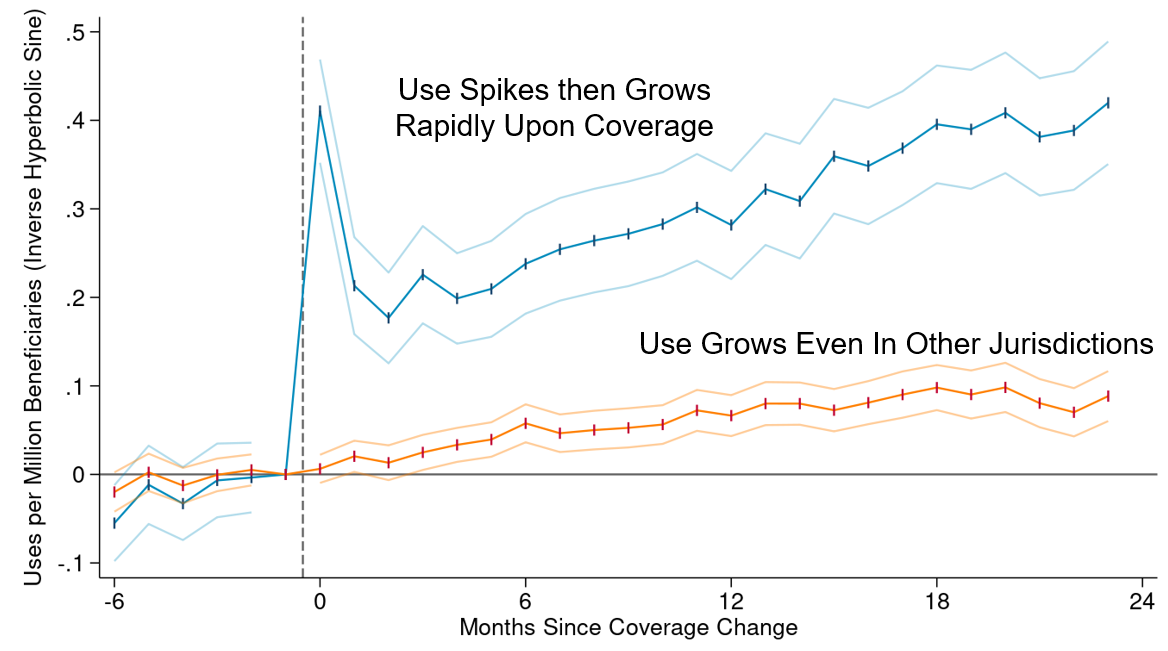Regulation and Diffusion of Innovation Under Information Spillovers: The Case of New Medical Procedures
Work in Progress
BibTeX citation available here. Contact me for a recent draft.
Abstract: The value of innovative technologies and practices are often initially uncertain, forcing policymakers to weigh the potential benefit of promoting a valuable innovation against the cost of encouraging adoption of an unsuccessful one. Complicating this tradeoff is the potential for wider adoption of the innovation to dispel uncertainty about its efficacy. In this paper, I examine these issues in the context of new medical procedures, where the value of each innovation is highly uncertain and Medicare contractors must decide whether to reimburse health care providers for the procedure. Using geographic variation in the coverage rules issued by these administrators, I show that the administrators exert significant influence on providers’ adoption of new procedures. Next, I leverage the resulting variation in the incentives of providers to adopt new procedures early when evidence is scarce or wait until the procedure is more familiar to the medical community to identify social learning and the size of information spillovers from individual providers’ experiences with the new procedures. I present reduced form evidence that social learning is an important determinant of the spread of innovation in this context, ruling out a number of other potential explanations. Finally in light of this evidence, I estimate a structural model of innovation adoption and provider learning to determine the optimal Medicare coverage policy for new procedures.

